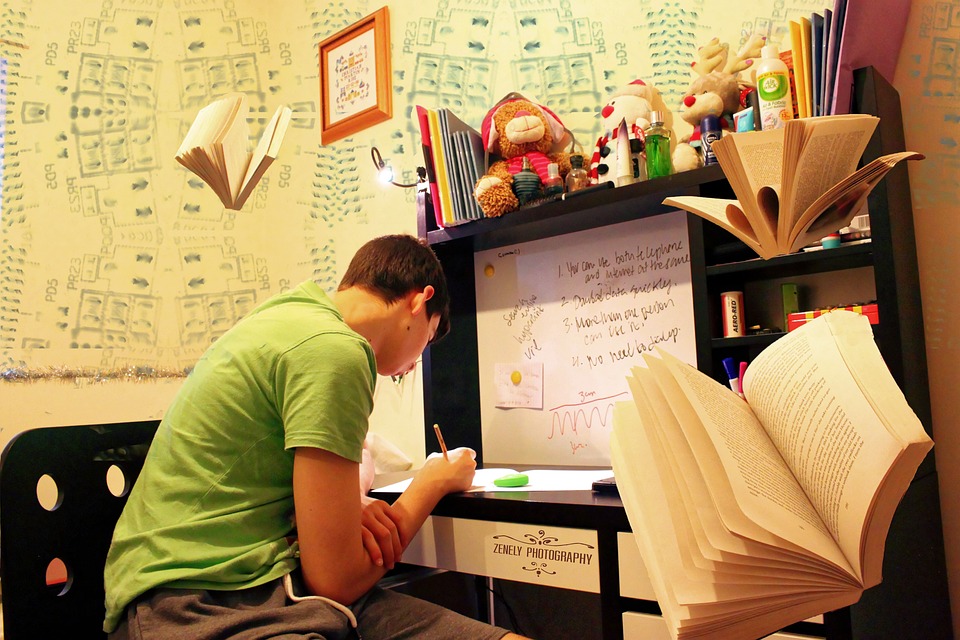Top 7 Study Tips For Exam Preparation
These study tips for exam preparation are the result of a thorough study by various subject experts. As the Exam season is around the corner and with it comes all the stress. What to start with, how to pace yourself, and how to increase your attention span to study long hours, are some questions we all ask ourselves. To make this stressful time a little bit easier for you, after rigorous research using various platforms and brainstorming, we have come up with these tips to help you study for your exams. Here is a list of 7 study tips for exam preparation that will give you an edge over your syllabus.
1. PLAN YOUR SCHEDULE
Plan and make a daily timetable for yourself and give yourself enough time to study. The study sessions should be short but frequent. Give yourself 15-minute breaks to cool off in between 2 study sessions. Give time for other activities as well, that’s very important. Having a daily timetable gives you a deadline and also gives you the motivation to study to earn your breaks. 45-minute study sessions are suggested as studies suggest that it’s the average attention span of students. It is also important that you follow the timetable without skipping anything to get you in the habit of the timetable. Also, plan topics to be completed each day to finish your course on time.

2. ORGANISE YOUR STUDY AREA
These study tips for exam preparation will bring a big change in your life. Such as decluttering your workspace is directly correlated to decluttering your mind. It’s psychological, when you see that your space is unorganized, it gives anxiety, also seeing things lying around reminds you of other tasks you left incomplete leading you to believe that you might not be able to complete your current work as well. So, when your study area is organized, it’s clean and there is nothing to distract you and you can put your full focus on the task at hand. Having all your study supplies within your reach saves time and doesn’t interfere with your focus.
Having a visually appealing study space encourages you to spend more time there. Better organization is known to improve productivity and focus, try it to see the results for yourself!
3. USE FLOW CHARTS AND DIAGRAMS WHENEVER POSSIBLE
Visual learning has a greater possibility of retention in the mind, also flow charts summarize lengthy confusing topics in one place making learning faster and easier. Visual elements get stored in the mind longer as compared to paragraphs and unending pages of text.

Another benefit of this is that while you are making the flowcharts you are actually studying the topics and some information is already retained in your brain, and you remember it when you see the flow chart next time, this is because your mind is conditioned to relate the flowchart heading to what you studied under that heading in the book. Pavlov’s conditioning experiment proved the efficiency of this method of learning.
Diagrams help in the actual understanding of topics as opposed to cramming. Essentially a diagram is a picture that communicates information. Diagrams are also scoring from the exam point of view if you have practised them well you have secured a few easy marks! These study tips for exam preparation are highly effective for students and working professionals. If you are a student and need classes or some concept clearance you can always reach us here.
4. PRACTICE FROM PREVIOUS EXAM PAPERS
A lot of times it so happens that you have studied the entire syllabus and you’re still not sure if you are prepared, or whether you still remember what you have memorized. Previous exam papers are of great help here, they act as mock tests for the actual exam and give you some practice. At the same time, it gives you confidence in what you have learned. Also, it helps you recognize the topics where you need to give more time to clear the concepts.
Top 7 Study tips for exam preparation
Don’t expect the results without the work. “The only place where success comes before work is in the dictionary. ~ vidal sasoon
Analyzing question papers from previous years will help you get an understanding of the types of questions asked and the topics given the most importance by teachers. These papers also give you a clear idea of the exam format and help you plan the pace at which you need to complete each individual section to complete the exam on time. Because what’s worse than knowing all the answers and not being able to write them because you ran out of time, right?
5. ORGANISE GROUP STUDY WITH FRIENDS
Being a part of a study group keeps procrastination at bay. It also creates a competitive environment that improves your individual productivity. When you study alone you don’t know if the seed you are studying at is good or not, on the contrary when you are studying in a group you can see other people’s pace and get motivated to keep up with others, with everyone thinking this way, you all are at your highest productivity.

Another important benefit of these study tips for exam preparation is that whenever you get doubts, you could discuss them with others and clear them instantly. Such doubts cause unnecessary breaks in flow while studying alone. Study groups help in sharing study techniques and also in discovering new techniques of learning. This is even more beneficial in maths, as 10 minds working on a problem is better than one, you can also discuss answers instantly.
These study tips for exam preparation requires great discipline.
6. DIVIDE YOUR ENTIRE SYLLABUS INTO PARTS
Seeing a subject syllabus containing 10 chapters might feel intimidating and you may be confused as to where to start, thinking that you might not complete it on time and not how to go along with it, leading to procrastination and stress.
Divide the syllabus into parts and assign time to complete each chapter depending on how much time you have in total. Shorter tasks with a deadline are better as it gives you a clear idea of what you need to do and a realistic-looking deadline gives you the belief that you can do it. These study tips for exam preparation will have a great impact on your study routine. and when you have a deadline, you are less likely to procrastinate.

7. TAKE REGULAR SHORT BREAKS IN BETWEEN SESSIONS
Breaks are very important, continuous long study sessions make you tired and less motivated as time passes thus productivity and information retention takes a great hit. Breaks give you time to relax and refocus and they also act as a reward, when you feel you know that it’s almost time to take a break, you work harder to give yourself the feeling that you have earned that break. They also act as a checkpoint, as we mentally give ourselves tasks to complete a certain topic or chapter before the break planning the pace accordingly.
Study tips for exam preparation
Courage + work = success.
If you are planning to study for 3 hours, for example, it is better to study for 45 minutes and take 1 5-minute break rather than studying continuously for 3 hours, it will be more productive as you’ll feel fresh after the breaks. There are n no. of study tips for exam preparation but we have chosen the best seven to keep the length of the content short and easily readable.
I hope these study tips for exam preparation help you excel in your educational progress, and if you have not prepared completely for your exam read our great article on how to cover your syllabus in one day. And if need any online tutor for better clearance of concepts contact us here.
Join us on our social journey on Instagram.
Please do share your feedback in the comments section. Thanks a ton!
All the best!!



10 Comments on Top 7 Study Tips For Exam Preparation
You Might Also Like
HOW TO TALK TO YOUR TEENS
How to talk to your teens is a big question nowadays. Adolescences an age where a teen goes through numerous…
POWER OF BELIEF
From the darkest of the ashes, Rose like the sun, bright dazzling red flashes. Tearing the clouds of dust, I…
SHOULD CHILDREN BE VACCINATED WITH COVID 19 VACCINE
After months of struggling with distant schooling, social distancing, online businesses, etc., TABLE OF CONTENTS: INTRODUCTION GOVERNMENT INFORMATION CHILDREN AND…